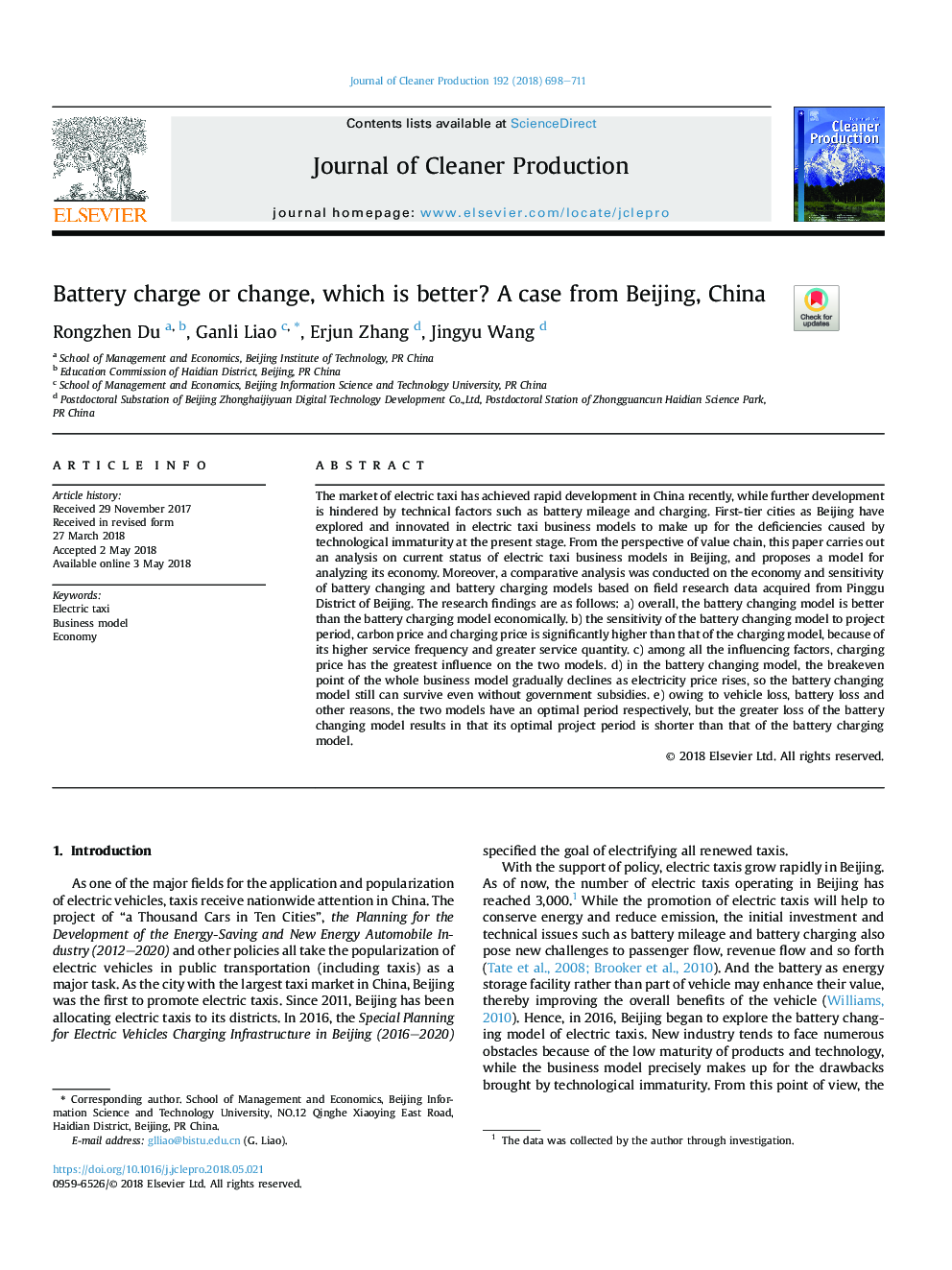| Article ID | Journal | Published Year | Pages | File Type |
|---|---|---|---|---|
| 8094661 | Journal of Cleaner Production | 2018 | 14 Pages |
Abstract
The market of electric taxi has achieved rapid development in China recently, while further development is hindered by technical factors such as battery mileage and charging. First-tier cities as Beijing have explored and innovated in electric taxi business models to make up for the deficiencies caused by technological immaturity at the present stage. From the perspective of value chain, this paper carries out an analysis on current status of electric taxi business models in Beijing, and proposes a model for analyzing its economy. Moreover, a comparative analysis was conducted on the economy and sensitivity of battery changing and battery charging models based on field research data acquired from Pinggu District of Beijing. The research findings are as follows: a) overall, the battery changing model is better than the battery charging model economically. b) the sensitivity of the battery changing model to project period, carbon price and charging price is significantly higher than that of the charging model, because of its higher service frequency and greater service quantity. c) among all the influencing factors, charging price has the greatest influence on the two models. d) in the battery changing model, the breakeven point of the whole business model gradually declines as electricity price rises, so the battery changing model still can survive even without government subsidies. e) owing to vehicle loss, battery loss and other reasons, the two models have an optimal period respectively, but the greater loss of the battery changing model results in that its optimal project period is shorter than that of the battery charging model.
Keywords
Related Topics
Physical Sciences and Engineering
Energy
Renewable Energy, Sustainability and the Environment
Authors
Rongzhen Du, Ganli Liao, Erjun Zhang, Jingyu Wang,
